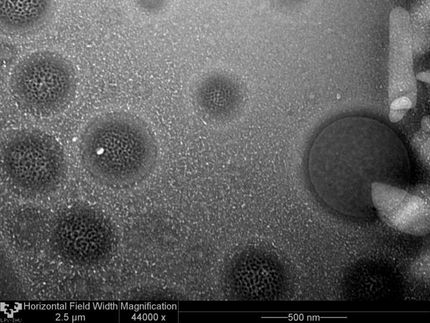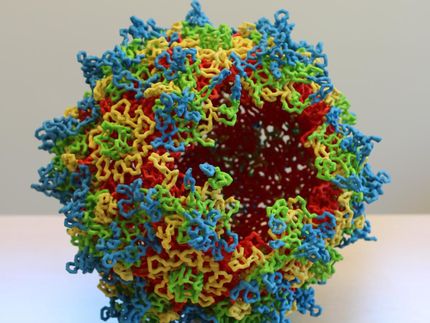GSK transfers rare disease gene therapy portfolio
GSK and Orchard therapeutics announced a strategic agreement, under which GSK will transfer its portfolio of approved and investigational rare disease gene therapies to Orchard, securing the continued development of the programmes and access for patients. This acquisition strengthens Orchard’s position as a global leader in gene therapy for rare diseases. GSK will continue to invest in the development of its platform capabilities in cell and gene therapies, with a focus on oncology.
Under the agreement, GSK will become an investor in Orchard Therapeutics, receiving a 19.9% equity stake along with a seat on the company’s board. GSK will also receive financial considerations in the form of royalties and commercial milestone payments related to the acquired portfolio. GSK and Orchard will exchange manufacturing, technical and commercial insights and learnings on the development of gene therapy medicines to ensure the success of the assets.
Orchard Therapeutics is a clinical-stage gene therapy company based in the United Kingdom and United States, dedicated to transforming the lives of patients with rare diseases through innovative gene therapies. The acquisition of GSK’s programmes complements Orchard’s pipeline of clinical and preclinical gene therapies for primary immune deficiencies and inherited metabolic disorders.
The portfolio of gene therapy programmes Orchard has acquired includes: Strimvelis, the first autologous ex vivo gene therapy for children with adenosine deaminase severe combined immunodeficiency (ADA-SCID), approved by the EMA in 2016, two late-stage clinical programmes in ongoing registrational studies for metachromatic leukodystrophy (MLD) and Wiskott Aldrich syndrome (WAS), and one clinical programme for beta thalassaemia. Orchard will also acquire rights to exclusively license three additional preclinical programmes from Telethon/Ospedale San Raffaele upon completion of clinical proof of concept studies for mucopolysaccharidosis type 1 (MPS1 or Hurler syndrome), chronic granulomatous disease (CGD) and globoid cell leukodystrophy (GLD).
The agreement follows GSK’s strategic review of its rare disease unit, announced in July 2017, as part of the Group’s ongoing prioritisation and strengthening of its pharmaceuticals pipeline with a focus on priority programmes in two current therapy areas, respiratory and HIV/infectious diseases, and two potential areas, oncology and immuno-inflammation.
John Lepore, Senior Vice President, R&D pipeline, GSK, said: “GSK is proud of the advances we have achieved in collaboration with the cell and gene therapy pioneers at Ospedale San Raffaele, Fondazione Telethon and MolMed in Milan. Since we announced our intent to review these medicines, our goal has been to identify the right owner who can build on what we’ve already achieved, and can advance these important medicines for patients, allowing GSK to focus on building its broader cell and gene therapy platform capabilities. Orchard are committed to patient access, and we’re confident that this agreement combined with the ongoing relationship between the two companies will support the progression of these valuable programmes to enable them to benefit patients.”
Mark Rothera, CEO, Orchard, said: “Acquiring this portfolio further advances Orchard’s vision to be a global, fully integrated company leading the field of gene therapy for rare diseases. The acquisition immediately expands our primary immune deficiency and inherited metabolic disorder franchises and adds the potential for other franchises in the future. At Orchard, we are committed to transforming the lives of patients with rare diseases through innovative gene therapies. We look forward to building upon the great achievements of GSK and its collaborators. This acquisition and the planned transfer of the agreement with MolMed secure the continued development of GSK’s programmes and leverages Orchard’s deep expertise and capabilities. In the two late stage programmes MLD and WAS for example, the clinical data* are very encouraging and we look forward to continuing to progress development.”
Francesca Pasinelli, General Manager of Fondazione Telethon, said: “We are confident that the agreement between GSK and Orchard Therapeutics represents a good opportunity for the future prospects of the gene therapy programmes developed at the San Raffaele-Telethon Institute for Gene Therapy. Orchard Therapeutics’ commitment to rare diseases will secure continuity of efforts for all diseases in the pipeline. As a charity born out of patients' need, this will enable us to fulfil our vision, which is to bring viable therapies to people struggling with rare genetic disease.”
Orchard Therapeutics will assume all obligations arising from GSK’s 2010 collaboration agreement with the Ospedale San Raffaele and Fondazione Telethon and from GSK’s collaboration agreement with MolMed.
In order to support a smooth transition of these programmes with minimal disruption to the projects, both companies have agreed to a transition period during which GSK will continue to conduct certain activities through to the end of 2018.
Other news from the department business & finance
Most read news
More news from our other portals
See the theme worlds for related content
Topic world Gene therapy
Genetic diseases once considered untreatable are now at the center of innovative therapeutic approaches. Research and development of gene therapies in biotech and pharma aim to directly correct or replace defective or missing genes to combat disease at the molecular level. This revolutionary approach promises not only to treat symptoms, but to eliminate the cause of the disease itself.

Topic world Gene therapy
Genetic diseases once considered untreatable are now at the center of innovative therapeutic approaches. Research and development of gene therapies in biotech and pharma aim to directly correct or replace defective or missing genes to combat disease at the molecular level. This revolutionary approach promises not only to treat symptoms, but to eliminate the cause of the disease itself.























































